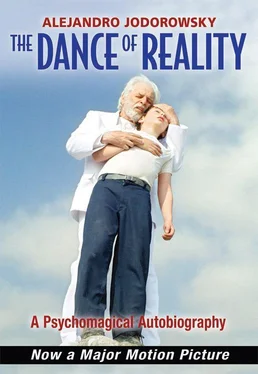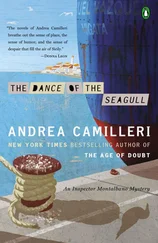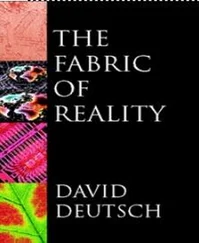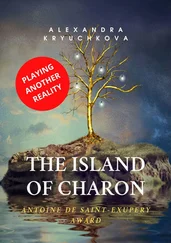A dog show also came to town. There were a great number of dogs of all breeds dressed like people: the nice young lady, her fiancé, the bad guy, the seductress, the clown, and so on. For an hour and a half I saw a universe in which dogs had supplanted the human race, which, I imagined, might have been decimated by plague. When I left the theater, the street seemed to me to be full of animals clad in human clothes. Not only dogs, but also tigers, ostriches, rats, vultures, frogs. At that early age, the dangerous animal part of every psyche became apparent to me.
The magnificent Leopoldo Frégoli also came to town. He played an entire theater company, changing costumes at a dizzying speed. He could be fat or thin, male or female, sublime or ridiculous. His performance made me realize that I was not one, but many. My soul was like a stage inhabited by countless characters fighting to take command. Personality was a matter of choice. We could choose to be what we wanted to be. An Italian family consisting of a father and mother with fourteen children also came to Tocopilla. The children, as obedient as dogs, danced, did acrobatics, performed balancing acts, juggled, and sang. My favorite was a three-year-old boy dressed as a policeman, whacking the guilty and the innocent alike with his baton. Thanks to them, I understood that the health of a family is maintained by shared labor, that there is not a moat separating the generations, that the rebellion of children against parents should be replaced by the absorption of knowledge, provided, of course, that the previous generation takes the trouble to expand its knowledge and pass on what it has acquired. Moreover, seeing children dressed as adults I realized that the child within us never dies, that every human being who has not done his spiritual work is a child disguised as an adult. It is wonderful to be a child during childhood and terrible when we are forced to be like adults at an early age. It is also terrible to be a child during adulthood. To grow up is to put the child in its proper place, to let it live within us not as the master but as the disciple. It should bring us everyday wonder, purity of intention, and creative games, but should never rule as a tyrant.
I also believe that my fascination with theater entered my being due to three events that deeply marked my childhood soul: I participated in the burial of a firefighter, I witnessed a seizure, and I heard the prince of China sing.
Since Casa Ukrania was near the fire station, to fight off boredom my father soon enlisted in the First Company. Fires were rare in this small town, at most one per year. Being a firefighter thus became a social activity, with a parade every year on the anniversary of the fire company’s founding, as well as charity balls, public exercises to test the equipment, soccer tournaments between the companies (there were three of them), and band performances on Sundays at the gazebo in the town square. When they were raising funds to buy a new fire engine, the firefighters put on their parade uniforms — white pants and red jackets with a star over the heart — and a group photo was taken. My father offered me up as a mascot. The offer was accepted, and at age six I was magically converted into a firefighter.
In this perpetual dance of reality, just as the fireworks inaugurating the company were ignited, a fire erupted in the poor part of town. And so the company headed to the site of the fire, still dressed in their fancy uniforms that covered their fire truck in red and white. Although no one invited me, I tagged along. I did not extinguish any flames, but I was entrusted with the sacred task of keeping an eye on the axes because the indigents of the neighborhood were fully capable of stealing not only those but also the wheels, ladders, hoses, nuts, and bolts off the luxurious vehicle while the firefighters struggled to save them from the fire. Once the fire had been conquered, it was noticed that the company chief was missing. He was pulled from the rubble, entirely black. A vigil was held for the corpse in the firemen’s barracks, with a white coffin covered with orange and red flowers symbolizing flames. At midnight he was brought from there to the cemetery in a solemn procession. No spectacle had ever impressed me so much; I felt proud to participate, sorry for the bereaved, and, especially, terrified. It was the first time I had walked the streets at such a late hour of the night. Seeing my world covered in shadows revealed the dark side of life to me. Dangerous aspects were hidden within familiar things. I was terrified of the residents who crowded the sidewalks, the whites of their eyes glittering in their dark silhouettes as they watched us slowly walk by, our feet gliding without our knees bending. First came the band, playing a heartrending funeral march. Then I came, so small, concealing my immeasurable anguish with the face of a warrior. Next came the ostentatious coach carrying the coffin, and finally behind that the three companies in their parade outfits, each fireman holding a torch. By agreement, all the lights in Tocopilla were off. The siren rang constantly. The flames of the torches made shadows that fluttered like giant vultures. I kept going for about three kilometers, but then I stumbled and fell. Jaime, who was in the wagon next to the driver, jumped down and picked me up; I woke up in my bed with a high fever. It seemed to me as if my sheets were covered with ashes. The scent of the wreaths of flowers brought from Iquique was stuck in my nostrils. I thought that the shadow vultures nesting in my room would devour me. Jaime could think of no better way to calm me than to say, as he put wet towels on my forehead and belly, “If I’d known you were so impressionable, I wouldn’t have brought you to the funeral. Good thing I picked you up just as you fell. Don’t worry, no one saw what a coward you are.” For a long time I dreamed that the star on my uniform was clinging to my chest like an animal, sucking up my voice to keep me from screaming while I was shut in a white coffin and brought to the graveyard. Later, this harrowing experience taught me to use the metaphorical funeral for psychomagical healing: an impressive ritual in which the sick person is buried.

The First Company of Firemen of Tocopilla. I am the six-year-old child, circled, on the left side of the picture.
The Prieto family had built a public spa on the northern edge of Tocopilla. The large swimming pool, carved out of the rocks by the seaside, was filled by the ocean waves. I did not like to swim there because there were fish and octopuses. It was a very popular place. On several occasions I saw people running to a beach nearby because an unemployed bald man known as the Cuckoo was kicking up a cloud of sand, twisting in a fit of epilepsy. The spectators who had been busy bathing or drinking bottles of beer by the dozen would come to watch as the sick man began with hoarse grunts that increased in their intensity until they became deafening screams. Amidst a great deal of nervous excitement the group would carry him to a dark, covered room as he kept on howling, shaking, and foaming at the mouth. The excitement lasted for an hour, which was how long it took for the Cuckoo’s seizures to pass over. Proud of having saved him by tying his hands and feet and putting the handle of a feather duster in his mouth, they would then take up a collection and treat him to an empanada and a beer. Looking like a sad dog he would eat and drink, and then leave, hanging his head. I, like many others I suppose, felt very sorry for him.
One Sunday morning, when the spa was full of people, I began to hear the bald man’s wheezing before anyone else did. I ran to the beach and saw him comfortably seated on a stone, taking great pains to raise the volume of his lamentations. He did not see me coming. He jumped up when I touched his shoulder, looking at me furiously. He grabbed a rock threateningly and said, “Get out of here, you little shit!” I ran, but as soon as I was hidden behind the rocks, I stopped to watch. When the bathers came running toward him, drawn by his screams, he put a piece of soap in his mouth, lay on the ground, and began to squirm and foam at the mouth. Who would have guessed that the Cuckoo was a rogue actor, as healthy as those who came to save him? When he writhed on the ground, with the soil full of sharp stones, he received painful cuts on his skin; his nervous saviors, lifting him up, would sometimes bang him against rocks; the empanada they bought him was mediocre, and the beer only one. Was it worth doing so much work for so little reward? I realized that what this poor man was after was the attention of others. Later I understood that all illnesses, even the cruelest ones, are a form of entertainment. At the basis of this is a protestation against the lack of love and the prohibition of any word or gesture clarifying this deficiency. That which is not said, not expressed, kept secret, can eventually turn into disease. The child’s soul, drowned by this prohibition, eliminates its organic defenses in order to let in the sickness that will give it the opportunity to express its desolation. Disease is a metaphor. It is a child’s protest turned into a representation.
Читать дальше













